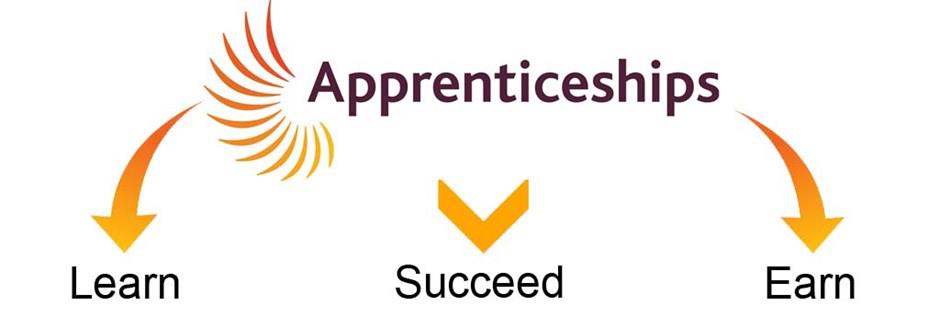Covid-19 Updates on Apprenticeships:
Please refer to these two places for the most up to date and relevant guidance:
https://haso.skillsforhealth.org.uk/covid-19-apprenticeship-updates/
https://madeinheene.hee.nhs.uk/PG-Dean/COVID-19-HEE-NE-Information

Recent reforms are driving the use of apprenticeship training pathways as a way of growing and developing the health and care workforce. There is potential for organisations to maximise the funding opportunities the introduction of the apprenticeship levy brings to train staff.
WYHEC: Our Mission
Our vision for WYHEC over the next 12 months is to continue to promote and enable apprenticeships in health and social care across the region, with a particular focus on levy transfer. Apprenticeships have become a key element of many national strategies recently, and present a potential solution to workforce shortages across the region. They allow organisations to recruit new workers as learners and then develop those workers into highly effective members of staff.
In order to encourage the spread of apprenticeships throughout West Yorkshire and Harrogate, we are looking to use the apprenticeship levy. The levy was introduced in 2017, and requires employers with an annual pay bill of over £3 million to pay the equivalent of 0.5% of their monthly salary costs as a tax. This money can only be reclaimed to pay for training for apprentices, and, if it is not spent, is lost after 24 months. As many larger organisations are not able to employ enough apprentices to pay their levy they are looking to transfer the money to non-levy paying organisations in health and social care to help support these organisations to employ apprentices. That is where we come in.
At WYHEC we have a list of organisations that have committed to transferring levy money to non-levy paying organisations, and we can help to match-up these organisations with those employers who are interested in employing an apprentice. As a team we can provide advice and support around employing apprentices, support conversations with both training providers, and facilitate the transfer of the levy money between the levy paying organisation and the non-levy paying organisation. If you are an employer within health and social care and you are considering employing an apprentice, or want to find out more then please do not hesitate to contact either Callum or Heather, who would welcome the chance to talk to you.
WYHEC: What we can do and how to contact us
- We can help employers identify roles and standards that would suit apprenticeships, and match a desired role to an available standard.
- We can give advice on the infrastructure needed to host an apprentice.
- We can help non-levy paying employers get set up onto the relevant online system (the digital apprenticeship service)
- We can match non-levy paying employers to levy paying employers who will give them money to pay for the training.
- We can support the transfer in person, and offer E-mail, telephone and face to face advice.
Callum Bennett, Project Manager for Apprenticeships
Tel: 07824526234 Email: callum.bennett@nhs.net
Heather Nicholson, Project Support Officer for Apprenticeships
Tel: 07880157213 Email: heather.nicholson1@nhs.net
This Months featured Apprenticeship Standards
Associate Ambulance Practitioner Apprenticeship Standard Level 4:
Occupational profile
The Associate Ambulance Practitioner (AAP) works as part of the wider Emergency & Urgent Care setting, having direct contact with service users or others, providing high quality and compassionate care. Day to day duties and tasks for an AAP would involve working as part of an ambulance crew responding to emergency (999) & urgent calls providing emergency and urgent assistance, driving safely and progressively at high speed. The AAP will assess, treat and manage service users at the scene (reducing the need for hospital admission), either referring service users to alternative care provisions or safely discharging them on scene. Other tasks involve working closely with other emergency services and the wider NHS.
Tasks of an AAP will include evaluating different approaches to solving problems, communicating those results accurately and reliably, with structured and coherent arguments. AAP’s work at a level above that of Healthcare Support Workers and have knowledge of the underlying concepts and associated principles within their area of study, including the ability to evaluate and interpret these. They will have the qualities and transferable skills necessary for employment, exercising some personal responsibility. AAP’s will undertake further annual training and develop new skills within a structured and managed environment when employment is secured. The AAP will work under the supervision of a Registered Practitioner in accordance with Regulatory policies and procedures for an initial probationary period of 20 weeks. After successful completion the AAP will be accountable for their own actions, operating within their own scope of practice, and will work alongside professional colleagues of higher or lower grades.
Entry requirements
Entry will be determined by employers and will include behavioural recruitment to support organisational values; interview; fitness test; 18 years+; Full GB driving licence.
Duration of the apprenticeship
Between 12 to 18 months
Progression to
Health & Care Professionals Council (HCPC) Registered Paramedic
Review Date
3 years unless there is evidence of significant change which employers agree warrants earlier amendment
Level
4
Click here for more information
Payroll Administrator Apprenticeship Standard level 3:
Occupational Profile
Payroll Administrators will, typically, have responsibility for setting up and operating the payroll within the organisation in which they are employed or on behalf of another organisation. The role may be located within a business / organisation or in a payroll bureau, bookkeeping or accounting practice, or professional services company. The job may sit within the HR or Finance function.
In medium to large organisations, a Payroll Administrator may work as part of a team, often reporting to a team leader, supervisor or manager. In smaller organisations, a Payroll Administrator may be a stand-alone role with sole responsibility for the payroll function. Additionally, and depending on their role within the organisation, a Payroll Administrator may also have responsibility for the accurate and timely completion of routine and non-routine payroll-related calculations and other information.
The main duties may typically include
Gathering, creation and processing of payroll-related information to ensure employees are paid on time and accurately. This will be via payroll software, though it’s use must be accompanied by the ability to perform this manually
Compliance with legislative and contractual obligations
Internal and external reporting of payroll information to deadlines
Effective and appropriate communication with employees and relevant stakeholders
Working to relevant ethical and professional standards in a legislative and regulatory environment that is constantly changing
Competence within the payroll occupation is demonstrated in this Standard by the required Knowledge, Skills and Behaviours detailed below.
Entry Requirements
Apprentices without Level 2 English and maths will need to achieve this level prior to taking End Point Assessment. For those with an education, health and care plan or a legacy statement, the apprenticeship’s English and maths minimum requirement is Entry Level 3. British Sign Language qualification are an alternative to English qualifications for whom this is their primary language
Link to Professional Registration and Progression
Whilst studying this apprenticeship, an Administrator will be eligible for immediate professional body recognition at Student Affiliate level of the Global Payroll Association (GPA). Also, professional body recognition as a student member at the Chartered Institute of Payroll Professionals (CIPP). Successful completion of the apprenticeship will provide eligibility to apply for Individual Affiliate membership of the GPA and Associate membership of the CIPP.
Completion of the Payroll Administrator Apprenticeship may provide progression opportunities to more senior positions such as Team Leader, Supervisor or Manager within Payroll, or to move to related roles in departments such as HR, Finance or Pensions.
Review Date
To ensure it continues to reflect employer requirements, the Standard will be reviewed after a maximum of three years or when significant change is required.
Level
3
Previous Featured Apprenticeship Standards
HR Support Apprenticeship Standard Level 3:
Handling day to day queries and providing HR advice ranging from recruitment through to retirement.
Please click here for more information
Ambulance Support Worker (Emergency, Urgent and Non-Urgent) Apprenticeship Standard Level 3:
Responding to emergency (999), urgent and or/unscheduled care calls to provide care and clinical support
Please click here for more information
Healthcare Support Worker Apprenticeship Standard Level 2:
Providing high-quality and compassionate health and social care for a wide range of people.
Please click here for more information
Business Administrator Apprenticeship Standard Level 3:
Supporting and engaging with different parts of the organisation and interact with internal or external customers.
Please click here for more information
Nursing Associate Apprenticeship Standard Level 5:
A highly trained support role to deliver effective, safe and responsive nursing care in and across a wide range of health and care settings.
Please click here for more information
Customer Service Practitioner Apprenticeship Standard Level 2:
Providing customer service products and services for businesses and other organisations including face-to-face, telephone, digital and written contact and communications.
Please click here for more information
Customer Service Specialist Apprenticeship Standard Level 3:
A professional for direct customer support within all sectors and organisation types.
Please click here for more information
Occupational Therapist (Integrated Degree) - Apprenticeship Standard Level 6:
Working with individuals enabling them to participate in meaningful occupations and activities of everyday life.
Please click here for more information
Team Leader/ Supervisor Apprenticeship Standard Level 3:
Managing teams and projects to meet a private, public or voluntary organisation's goals.
Please click here for more information
Adult Care Worker Apprenticeship Standard Level 2:
Providing frontline care for vulnerable adults to within their own homes, day care centres, residential and nursing homes and other healthcare settings.
Please click here for more information
Operations/Departmental Manager Apprenticeship Standard Level 5:
Managing teams and projects in line with a private, public or voluntary organisation's operational or departmental strategy.
Please click here for more information
Clinical Coder Apprenticeship Standard Level 3:
Reading medical notes / records and analysing the contents which then translate into alphanumeric codes that accurately represent the patient’s stay
Please click here for more information
Registered Nurse Apprenticeship Standard Level 6:
Giving care, advice and support to sick, injured or disabled people.








